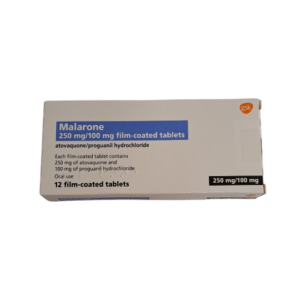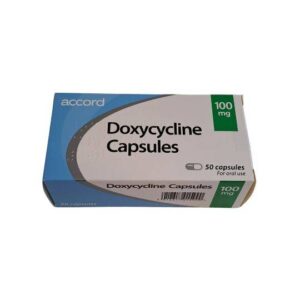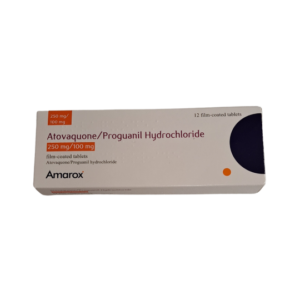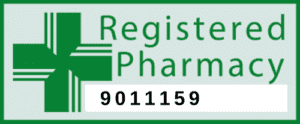- Mon - Fri: 9:00 - 17:00
- 01493 600610
Malaria is a potentially life-threatening infectious disease caused by the Plasmodium parasite. It is primarily transmitted through the bites of infected female Anopheles mosquitoes. Malaria is prevalent in many tropical and subtropical regions around the world, particularly in parts of Africa, Asia, and South America.
When an infected mosquito bites a person, the malaria parasites are transmitted to their bloodstream. The parasites then travel to the liver, where they mature and multiply. Afterward, they re-enter the bloodstream, infecting red blood cells and causing them to rupture. This leads to recurring cycles of symptoms and the potential for severe complications.
Common symptoms of malaria include high fever, chills, headache, muscle aches, fatigue, and sweating. If left untreated, malaria can progress to severe forms, resulting in organ failure, anemia, and even death, especially in young children and individuals with weakened immune systems.
Malaria prevention primarily involves two key approaches: vector control and chemoprophylaxis. Vector control aims to reduce mosquito populations and protect against mosquito bites by using insecticide-treated bed nets, indoor spraying of insecticides, and other preventive measures. Chemoprophylaxis, on the other hand, involves taking specific antimalarial medications before, during, and after travel to malaria-endemic areas to prevent infection.
Malaria tablets, also known as antimalarial medication or malaria prophylaxis, are prescription drugs specifically designed to prevent or treat malaria. These tablets are available in different formulations, such as chloroquine, mefloquine, doxycycline, or atovaquone/proguanil, each with its own recommended usage and potential side effects.
It’s important to consult with healthcare professionals or travel health experts to determine the most suitable and effective malaria tablets for your specific travel destination and personal health circumstances. Online Chemist provides tailored recommendations and dosing instructions to ensure your protection against malaria during your journey.
Remember, even if you take malaria tablets, it is still crucial to take additional measures to avoid mosquito bites, such as wearing long sleeves and pants, using insect repellents, and staying in well-screened or air-conditioned accommodations, especially during peak mosquito activity times.
Malaria is primarily spread through the bites of infected female Anopheles mosquitoes. When a mosquito bites a person who has malaria, it ingests the Plasmodium parasites present in the person’s blood. The parasites then undergo development within the mosquito before they can be transmitted to another individual.
When an infected mosquito subsequently bites a healthy person, the malaria parasites are injected into their bloodstream. From there, the parasites travel to the liver, where they multiply and mature. Once the parasites have multiplied sufficiently, they re-enter the bloodstream, infecting red blood cells and initiating the symptomatic phase of malaria.
It’s important to note that malaria is not directly transmitted from person to person like a cold or flu. It requires the intermediate step of mosquito transmission to spread between individuals. However, in rare cases, malaria can be transmitted through other means, such as:
Blood transfusion: Receiving blood from an infected person can lead to malaria transmission if the donor’s blood contains the malaria parasites.
Organ transplantation: If an organ, such as the liver or kidney, is obtained from an individual with malaria and transplanted into another person, the recipient may contract malaria.
Mother-to-child transmission: During pregnancy, a mother can pass the malaria parasites to her unborn child through the placenta. This is known as congenital malaria.
It’s worth mentioning that not all species of mosquitoes transmit malaria. Only female Anopheles mosquitoes, which are active mainly during nighttime hours, are capable of transmitting the disease. Additionally, the risk of malaria transmission is highest in areas where these mosquitoes are prevalent and where the Plasmodium parasites circulate among the local population.
To prevent the spread of malaria, it is crucial to control mosquito populations through measures like insecticide-treated bed nets, indoor residual spraying of insecticides, and environmental management to eliminate mosquito breeding sites. Additionally, individuals can protect themselves by using personal protective measures such as wearing long sleeves, using insect repellents, and sleeping under insecticide-treated bed nets, especially in malaria-endemic regions.
Preventing malaria involves a combination of measures aimed at reducing the risk of mosquito bites and using antimalarial medications when necessary. Here are some key strategies for malaria prevention:
Mosquito Bite Prevention:
- Use insect repellents: Apply insect repellents containing DEET (N,N-diethyl-meta-toluamide), picaridin, or other recommended ingredients to exposed skin and clothing.
- Wear protective clothing: Cover your body with long-sleeved shirts, long pants, socks, and closed-toe shoes, especially during dusk and dawn when mosquitoes are most active.
- Sleep under mosquito nets: Use insecticide-treated bed nets, particularly those treated with long-lasting insecticides, to create a protective barrier while sleeping.
- Stay in screened or air-conditioned accommodations: If possible, choose accommodations with proper screening or air conditioning to prevent mosquito entry.
2. Malaria Prophylaxis (Antimalarial Medications):
- Consult a healthcare professional: Seek advice from a travel health expert or healthcare provider with experience in travel medicine to determine the most appropriate antimalarial medication for your destination and personal health conditions.
- Take prescribed medication as directed: Begin taking the recommended antimalarial medication before entering a malaria-endemic area, continue during your stay, and complete the full course as instructed.
- Follow dosage instructions: Adhere to the prescribed dosage and frequency of the medication to ensure its effectiveness.
- Be aware of potential side effects: Familiarize yourself with the possible side effects of the antimalarial medication and seek medical attention if any adverse reactions occur.
- Remember, antimalarial medication is not 100% effective: While antimalarial drugs significantly reduce the risk of infection, they do not guarantee absolute protection. Therefore, combining medication with mosquito bite prevention is crucial.
3. Other Measures:
- Stay informed: Stay updated on the malaria situation in your destination, including any outbreaks or drug resistance patterns.
- Malaria testing: If you experience fever or flu-like symptoms both during and after your trip to a malaria-endemic area, seek medical attention for proper diagnosis and testing.
It’s important to note that the choice of antimalarial medication and preventive measures may vary based on factors such as your travel destination, the specific Plasmodium species prevalent in that area, your health condition, and any medication interactions. Therefore, it is advisable to consult with a healthcare professional or travel health expert for personalized recommendations tailored to your specific circumstances.
The choice of malaria tablets depends on several factors, including the travel destination, the presence of drug resistance in that region, your medical history, and individual preferences. It is essential to consult a healthcare professional or travel health expert who can provide personalized recommendations based on your specific circumstances. However, here are some commonly used antimalarial medications:
Atovaquone/Proguanil (Malarone): Malarone is a combination of atovaquone and proguanil. It is commonly prescribed for regions where chloroquine resistance is prevalent. Malarone is generally well-tolerated, but it can be more expensive than some other options.
Doxycycline: Doxycycline is an antibiotic that is also effective against malaria. It is often used as an alternative for areas with chloroquine-resistant malaria. Doxycycline may not be suitable for pregnant women, young children, or individuals with certain medical conditions. It can also cause increased sensitivity to sunlight.
Mefloquine: Mefloquine is an option for areas with chloroquine-resistant malaria. However, it is associated with a higher risk of neuropsychiatric side effects, such as mood changes and vivid dreams. Mefloquine is not recommended for individuals with a history of psychiatric conditions.
- Chloroquine: Chloroquine was once a widely used and affordable antimalarial medication. However, due to the widespread development of chloroquine resistance, it is no longer effective in many malaria-endemic regions.
Primaquine: Primaquine is used to prevent relapse of certain types of malaria, such as Plasmodium vivax and Plasmodium ovale. It is typically used in combination with other antimalarial medications and requires screening for G6PD deficiency before use.
It’s important to consider factors such as the duration of travel, potential side effects, drug interactions, and contraindications when choosing a specific antimalarial medication. Healthcare professionals can assess your medical history and provide appropriate recommendations based on the latest guidelines and up-to-date information on drug resistance patterns in the region you plan to visit.
Remember to start taking the prescribed antimalarial medication before your trip, continue during your stay in the malaria-endemic area, and complete the full course as instructed to ensure maximum protection against malaria.
The symptoms of malaria can vary depending on the type of malaria parasite involved, the individual’s immune response, and the severity of the infection. Malaria typically manifests with flu-like symptoms that may appear within a few days to several weeks after being bitten by an infected mosquito. Here are common symptoms associated with malaria:
High Fever: Malaria often presents with recurrent high fever, which may occur in cycles. The fever may be accompanied by chills and shivering.
Headache: Persistent or severe headaches are a common symptom of malaria infection.
Fatigue and Weakness: Malaria can cause extreme fatigue and weakness, leading to a general feeling of tiredness.
Muscle and Joint Pain: Individuals with malaria often experience muscle and joint aches or pain, which can be widespread or localized.
Sweating and Shivering: Malaria may cause profuse sweating followed by episodes of intense shivering.
Nausea and Vomiting: Some people with malaria may experience nausea, vomiting, and a lack of appetite.
Abdominal Pain: Malaria infection can cause abdominal pain and discomfort, often associated with an enlarged spleen.
Diarrhea: In some cases, malaria can lead to diarrhea.
Anemia: Malaria can cause a decrease in red blood cells, leading to anemia. Symptoms of anemia may include weakness, pale skin, and shortness of breath.
Severe forms of malaria, such as cerebral malaria or severe falciparum malaria, can develop in some cases. These can lead to additional symptoms such as seizures, confusion, jaundice (yellowing of the skin and eyes), difficulty breathing, organ dysfunction, and coma. Severe malaria requires urgent medical attention and can be life-threatening.
It’s important to note that these symptoms can be similar to those of other illnesses, so it is crucial to seek medical attention and get a proper diagnosis if you experience symptoms after traveling to a malaria-endemic area or suspect a possible malaria infection. Early diagnosis and prompt treatment are vital for successful management of malaria.
Malaria tablets are not provided for free by the National Health Service (NHS) in the UK. In most cases, antimalarial medications are considered private prescriptions, and patients are required to purchase them themselves.
You can buy malaria prophylaxis (anti-malaria tablets) from Online Chemist. You simply need to complete a free online consultation.
The choice of the best antimalarial medication depends on several factors, including the specific region you plan to visit, the type of malaria parasite prevalent in that area, your medical history, and any potential drug interactions. It is important to consult with a healthcare professional or travel health expert who can provide personalized recommendations based on your individual circumstances. However, here are some commonly used antimalarial medications:
Atovaquone/Proguanil (Malarone): Malarone is a combination of atovaquone and proguanil. It is commonly prescribed for regions with chloroquine-resistant malaria. Malarone is generally well-tolerated and has a convenient once-daily dosing regimen. However, it can be more expensive than some other options.
Doxycycline: Doxycycline is an antibiotic that is also effective against malaria. It is often used as an alternative for areas with chloroquine-resistant malaria. Doxycycline may not be suitable for pregnant women, young children, or individuals with certain medical conditions. It can also cause increased sensitivity to sunlight.
Mefloquine: Mefloquine is an option for areas with chloroquine-resistant malaria. However, it is associated with a higher risk of neuropsychiatric side effects, such as mood changes and vivid dreams. Mefloquine is not recommended for individuals with a history of psychiatric conditions.
The choice of the best antimalarial medication depends on various factors, including the specific malaria risks in your travel destination, your health status, and any contraindications or potential side effects. A healthcare professional will consider these factors and provide the most appropriate recommendation for your situation. Book a consultation with Online Chemist.
It’s important to note that no antimalarial medication offers 100% protection, and all medications have potential side effects. Therefore, it is crucial to follow the prescribed dosage, take preventive measures to avoid mosquito bites, and seek medical attention if you develop symptoms of malaria, even while on antimalarial medication.
Do you need a prescription for malaria tablets?
You can buy some brands of anti-malaria tablets over the counter without a prescription.
However, it is recommended to get anti-malarials after proper consultation. Book an appointment or complete our online consultation.
HOW IT WORKS
Three easy steps for your private treatment ...
STEP 01
Complete consultation questionnaire
Complete consultation for your selected condition and order your medication.
Please answer the health questionnaire honestly, this will ensure that the medication you are requesting is right for you.
STEP 02
Prescriber approves
The UK registered prescriber will review your questionnaire and approve your order. In some cases, the prescriber may specify a preferred treatment.
STEP 03
Delivered to your door
Your treatment will be sent directly from our NHS online pharmacy, Online Chemist based in Norfolk.
General Pharmaceutical Council's advice for online treatment
The General Pharmaceutical Council (GPhC) and other UK health organisations have produced a handy guide to help people going online for medicines or treatment.
Read the guideline here
If you have a medical emergency do not use this service.
Please contact your own GP, visit Accident and Emergency or call 999 or 111 immediately.








